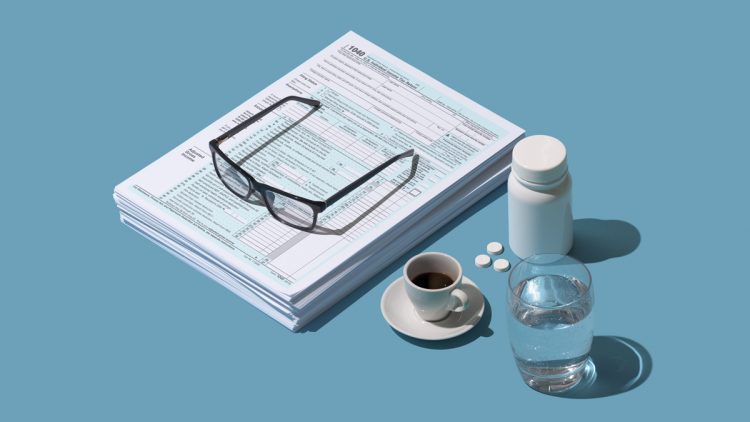IRS Tax Inflation Adjustments For Tax Year 2021
The Inland revenue Service recently announced the 2021 tax year annual inflation adjustments for upwards of sixty provisions. The details below are from: https://www.irs.gov/newsroom/irs-provides-tax-inflation-adjustments-for-tax-year-2021
Highlights of changes in Revenue Procedure 2020-45
The Consolidated Appropriation Act for 2020 increased the amount of the minimum addition tax for failure to file a tax return within 60 days of the due date. Beginning with returns due after Dec. 31, 2019, the new additional tax is $435 or 100 percent of the amount of tax due, whichever is less, an increase from $330. The $435 additional tax will be adjusted for inflation.
The tax year 2021 adjustments described below generally apply to tax returns filed in 2022.
The tax items for tax year 2021 of greatest interest to most taxpayers include the following dollar amounts:
- The standard deduction for married couples filing jointly for tax year 2021 rises to $25,100, up $300 from the prior year. For single taxpayers and married individuals filing separately, the standard deduction rises to $12,550 for 2021, up $150, and for heads of households, the standard deduction will be $18,800 for tax year 2021, up $150.
- The personal exemption for tax year 2021 remains at 0, as it was for 2020; this elimination of the personal exemption was a provision in the Tax Cuts and Jobs Act.
- Marginal Rates: For tax year 2021, the top tax rate remains 37% for individual single taxpayers with incomes greater than $523,600 ($628,300 for married couples filing jointly). The other rates are:
- 35%, for incomes over $209,425 ($418,850 for married couples filing jointly);
- 32% for incomes over $164,925 ($329,850 for married couples filing jointly);
- 24% for incomes over $86,375 ($172,750 for married couples filing jointly);
- 22% for incomes over $40,525 ($81,050 for married couples filing jointly);
- 12% for incomes over $9,950 ($19,900 for married couples filing jointly).
- The lowest rate is 10% for incomes of single individuals with incomes of $9,950 or less ($19,900 for married couples filing jointly).
- For 2021, as in 2020, 2019 and 2018, there is no limitation on itemized deductions, as that limitation was eliminated by the Tax Cuts and Jobs Act.
- The Alternative Minimum Tax exemption amount for tax year 2021 is $73,600 and begins to phase out at $523,600 ($114,600 for married couples filing jointly for whom the exemption begins to phase out at $1,047,200). The 2020 exemption amount was $72,900 and began to phase out at $518,400 ($113,400 for married couples filing jointly for whom the exemption began to phase out at $1,036,800).
- The tax year 2021 maximum Earned Income Credit amount is $6,728 for qualifying taxpayers who have three or more qualifying children, up from a total of $6,660 for tax year 2020. The revenue procedure contains a table providing maximum Earned Income Credit amount for other categories, income thresholds and phase-outs.
- For tax year 2021, the monthly limitation for the qualified transportation fringe benefit remains $270, as is the monthly limitation for qualified parking.
- For the taxable years beginning in 2021, the dollar limitation for employee salary reductions for contributions to health flexible spending arrangements remains $2,750. For cafeteria plans that permit the carryover of unused amounts, the maximum carryover amount is $550, an increase of $50 from taxable years beginning in 2020.
- For tax year 2021, participants who have self-only coverage in a Medical Savings Account, the plan must have an annual deductible that is not less than $2,400, up $50 from tax year 2020; but not more than $3,600, an increase of $50 from tax year 2020. For self-only coverage, the maximum out-of-pocket expense amount is $4,800, up $50 from 2020. For tax year 2021, participants with family coverage, the floor for the annual deductible is $4,800, up from $4,750 in 2020; however, the deductible cannot be more than $7,150, up $50 from the limit for tax year 2020. For family coverage, the out-of-pocket expense limit is $8,750 for tax year 2021, an increase of $100 from tax year 2020.
- For tax year 2021, the adjusted gross income amount used by joint filers to determine the reduction in the Lifetime Learning Credit is $119,000, up from $118,000 for tax year 2020.
- For tax year 2021, the foreign earned income exclusion is $108,700 up from $107,600 for tax year 2020.
- Estates of decedents who die during 2021 have a basic exclusion amount of $11,700,000, up from a total of $11,580,000 for estates of decedents who died in 2020.
- The annual exclusion for gifts is $15,000 for calendar year 2021, as it was for calendar year 2020.
- The maximum credit allowed for adoptions for tax year 2021 is the amount of qualified adoption expenses up to $14,440, up from $14,300 for 2020.
Tax Settlement in Mesa, Arizona
If you need IRS Debt Help, Tax Debt Settlements or Tax Debt Advising in Phoenix, Mesa or anywhere else, Tax Debt Advisors can help! Give us a call at 480-926-9300 or fill out our contact form for a free consultation.


